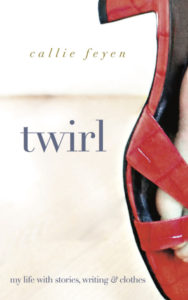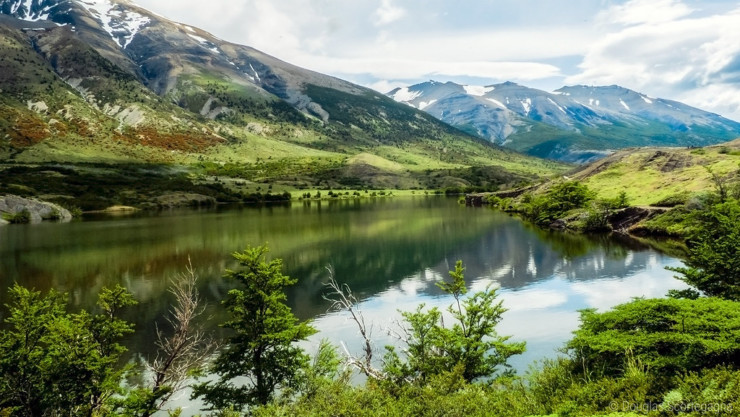Growing up, summer meant days spent at Rheme Pool. I pinned my pool pass to my towel, pulled on my shorts over my bathing suit, slipped on a pair of flip flops, and off I went. I returned home with crunchy hair and eyes so red it hurt to blink.
I loved swimming. I loved doing handstands, diving, skimming the bottom like a mermaid. I didn’t love the hourly 15 minute rest period, but that’s when I’d pull out 15 cents from my shorts pocket for a Super Rope. (The only reason I brought the shorts was to store my candy money.) On the way out of the pool, I stuck 35 cents in a vending machine for a pack of Wintergreen LifeSavers. I’d eat them on my walk home.
I always stopped for a minute on the overpass and watch the cars zoom toward the city. I loved the sounds of the cars and the el. I loved the feeling of the summer evening air on my shoulders, the smell of chlorine and sun on my skin, and I loved the taste of mint and sugar that sliced through it all.
I write this now while outside my window I can hear the crank and bounce of diving boards, the swim team coach’s voice, water splashing, and kids yelling and laughing. They are the sounds of summer and both my girls are now participating in it.
This morning I told them at least 250 times to put on sunblock. I hovered nearby to make sure they ate their fruit and also breakfast with enough protein and carbs to fuel them for swimming. I told them both to put their glasses inside the pocket of their swim bags and not to toss them on the concrete.
I am tired from saying all these things, all the time.
A memory: My mom took me to Lake Michigan’s Oak Street Beach where the skyline was to our back and water so blue spread so wide was in front of us. We placed our beach towels down and walked to the shore to test the water, and my mom put one arm around me, and with the other, pointed to the horizon.
“See where the sky meets the water?” she asked.
“Yes,” I told her, the line visible before me.
“That’s as far as you’re allowed to go,” she said.
We both laughed and the line shook, blurring.
My girls will come home from swimming famished. They will pour walnuts into a bowl, slather Nutella on graham crackers, one of them will slice a cucumber to share, the other will rinse off grapes.
The will eat in their bathing suits, their hair crunchy and their eyes red. The house will smell of chlorine and sunshine, and I will place a handful of peanut M&Ms on the table for each of them, then hang the towels they’ve dropped on the floor on our back yard deck, in case they want to swim again.
Try It
Write a poem about swimming, the pool, the beach, or water, but place a parent or parental figure in your piece.
Photo by Douglas Scortegagna Creative Commons, via Flickr. Post by Callie Feyen.
Browse more poetry prompts
Twirl is writing magic.

- Poetry Prompt: Courage to Follow - July 24, 2023
- Poetry Prompt: Being a Pilgrim and a Martha Stewart Homemaker - July 10, 2023
- Poetry Prompt: Monarch Butterfly’s Wildflower - June 19, 2023

Jenna Brack says
Swimming Lessons
You stood guard
behind the chain-link fence
as we treaded, kickboarded,
backstroked, flip-turned, dove
into shivering pools on steamy mornings,
our water-soaked complaints falling
onto your dry hair—
a symbol of the summer
you nearly dipped beneath
the lake’s surface
and never became our mother.
I crossed an ocean
once, called to confess
my shoulders had turned
the color of your rouged cheeks.
I heard you sigh
from behind the fence, still
holding the swim bag
with my forgotten sunscreen.
I have left some things behind,
but when water surrounds
my body, I rehearse the kicks,
strokes, and turns you never learned
but left behind for me.
L.L. Barkat says
Jenna, this is poignant. I like how the poem itself seems to swim us to its conclusion.
martin gottlieb cohen says
The First Day
The first day at summer camp, a few counselors took the children to the lake for swimming. I didn’t know how to swim and so I watched from the deck. I didn’t like the idea of living things in the water. One boy overheard me tell the counselor that I couldn’t swim and told me that there were rats as big as dogs that could swim in the lake. A little later, another boy screamed snake while he was wading near the shore. A counselor ran over and discovered that someone had relieved themselves. I was repulsed. I started to walk away from the crowd and along the shore and noticed something on the lake. I looked more closely and realized it was an insect standing on the undisturbed lake’s surface. I was in awe of it. At first, I couldn’t believe what I was seeing. Then it lifted one leg and placed it on the surface again.
the mountain top dimples under the strider’s leg
The counselor approached me and asked if I would like to go row boating. I told her that I didn’t know how and she said she would row. I agreed and we went to the deck where the boat lies. The wind grew stronger in the late afternoon breaking up the sun’s reflection into choppy bits of light. We shoved off from the deck, and I heard the rush of water then a pause. The lifted oars would rub against the fittings as she pushed forward in the wind. We came closer to a strange looking boulder with what looked like as pock marks all over its surface. She told me it was once a volcano a long time ago.
Volcanic rock
the wind across the lake
The sun dipped below the silhouetted forest. The wind faded with the light and we headed back to the landing. As we lifted ourselves onto the deck, something on the water passed by.
A leaf in and out of twilight
L.L. Barkat says
I like the movement between poetry and prose here—the way it lends a timeless, suspended feeling.